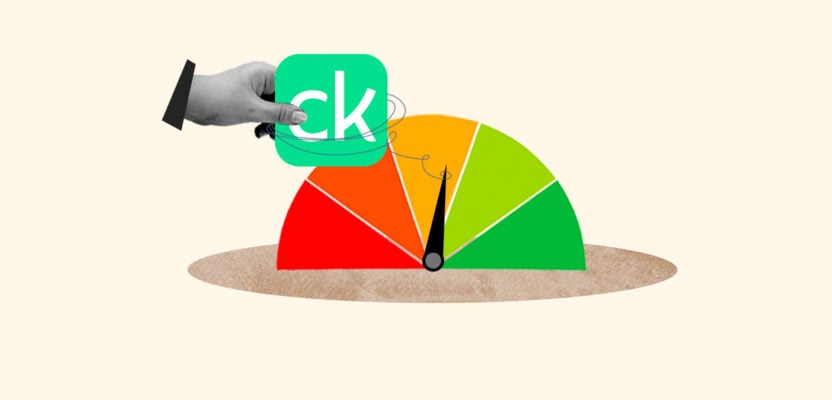Credit Karma is a popular credit monitoring service—one of several websites that you can use to check your credit score for free.
You might have read that having your credit checked can lower your credit score by a few points. Does this mean that using Credit Karma can damage your credit?
Fortunately, the answer is no: using Credit Karma to check your credit will never affect your credit score in any way. However, if you apply for a credit card or a loan via Credit Karma’s website, that may lower your score.
Table of Contents
Why doesn’t Credit Karma affect my credit score?
Checking your own credit never hurts your credit score, regardless of whether you check it through Credit Karma or another credit monitoring website.
This is because credit monitoring services perform a special type of credit check, known as a soft credit check or soft inquiry, which every major credit scoring model ignores. Not only do soft checks not affect your score, lenders don’t see them when they review your credit reports. Soft inquiries are completely harmless and don’t affect your finances or your lending prospects.
This is in contrast to hard inquiries, which appear on your credit report when you apply for new credit (e.g., a credit card or loan). Unlike soft inquiries, hard inquiries drop your credit score by several points (generally around 5). Services like Credit Karma never conduct hard inquiries.
Why don’t soft inquiries hurt your credit score?
The credit scoring models ignore soft inquiries because they don’t suggest anything about your creditworthiness.
Unlike hard inquiries, which are associated with shaking up your finances by taking on new debt, soft inquiries just indicate that you’re conscientious—you care enough about your credit to keep tabs on it by using services like Credit Karma.
If anything, that suggests good things about your reliability as a borrower, so it wouldn’t make sense to penalize you for it.
Applying for credit through Credit Karma can hurt your credit score
Although using Credit Karma to check your score won’t lower your credit, the site can indirectly lead to minor credit score damage if you apply for credit accounts that they recommend to you.
When you use Credit Karma, it will show you ads for credit cards and loans that they think you’d qualify for. If you apply for one of the accounts they show you, the lender will pay Credit Karma a referral fee. This is how Credit Karma makes money (and how they’re able to keep their service free). 1
Applying for credit via Credit Karma will generate a hard inquiry, just like applying for any other credit account. As you know, this will slightly lower your score.
The upshot: It’s safe to use Credit Karma’s actual credit monitoring services as often as you like, but be cautious about applying for credit. Don’t submit an application purely out of curiosity—only do so if you decide you actually want the credit card or loan that they’re recommending.
Should I use Credit Karma?
Whether you use Credit Karma or not is entirely up to you. It’s free and reputable, and it’s a decent way to keep tabs on your credit health.
However, Credit Karma does have several downsides. Most notably, the scores that it displays are generated with the VantageScore credit scoring model, which is significantly less popular than the FICO credit scoring model. (Credit monitoring companies prefer VantageScore because it’s free for them to license, even though most actual lenders use FICO.)
Even if you do sign up for Credit Karma, you should also look into places to get your free FICO score. For instance, if you have a credit card, you may be able to check your score through its online portal.
You can also use the site FreeCreditScore.com, which is maintained by Experian, one of the three main credit bureaus that produce your credit reports. Notably, this is the only bureau that Credit Karma doesn’t have a relationship with (it generates your scores from your TransUnion and Equifax reports), so registering for both sites will let you keep tabs on your credit with all three bureaus.
Other alternatives to Credit Karma
There are also several other websites that you can use to get your free credit score, including NerdWallet and Credit Sesame. There’s nothing wrong with any of these sites, but they also offer your VantageScore, not your FICO score, so there also isn’t much reason to use them instead of Credit Karma.
Regardless of which service you pick, you can check your credit as often as you like. Again, using a credit monitoring service never damages your credit score.
Takeaway: Using Credit Karma doesn’t lower your credit score
- Credit monitoring services like Credit Karma generate soft inquiries, not hard inquiries, which means they don’t affect your credit score.
- However, if you apply for credit via one of Credit Karma’s affiliate links, it will generate a hard inquiry, which will damage your score.
- Although Credit Karma is perfectly safe to use, it has a few downsides, most notably that it doesn’t display your FICO score.
- There are other free services you can use to get your FICO score, which are also safe for your credit.







